Latest DePIN News
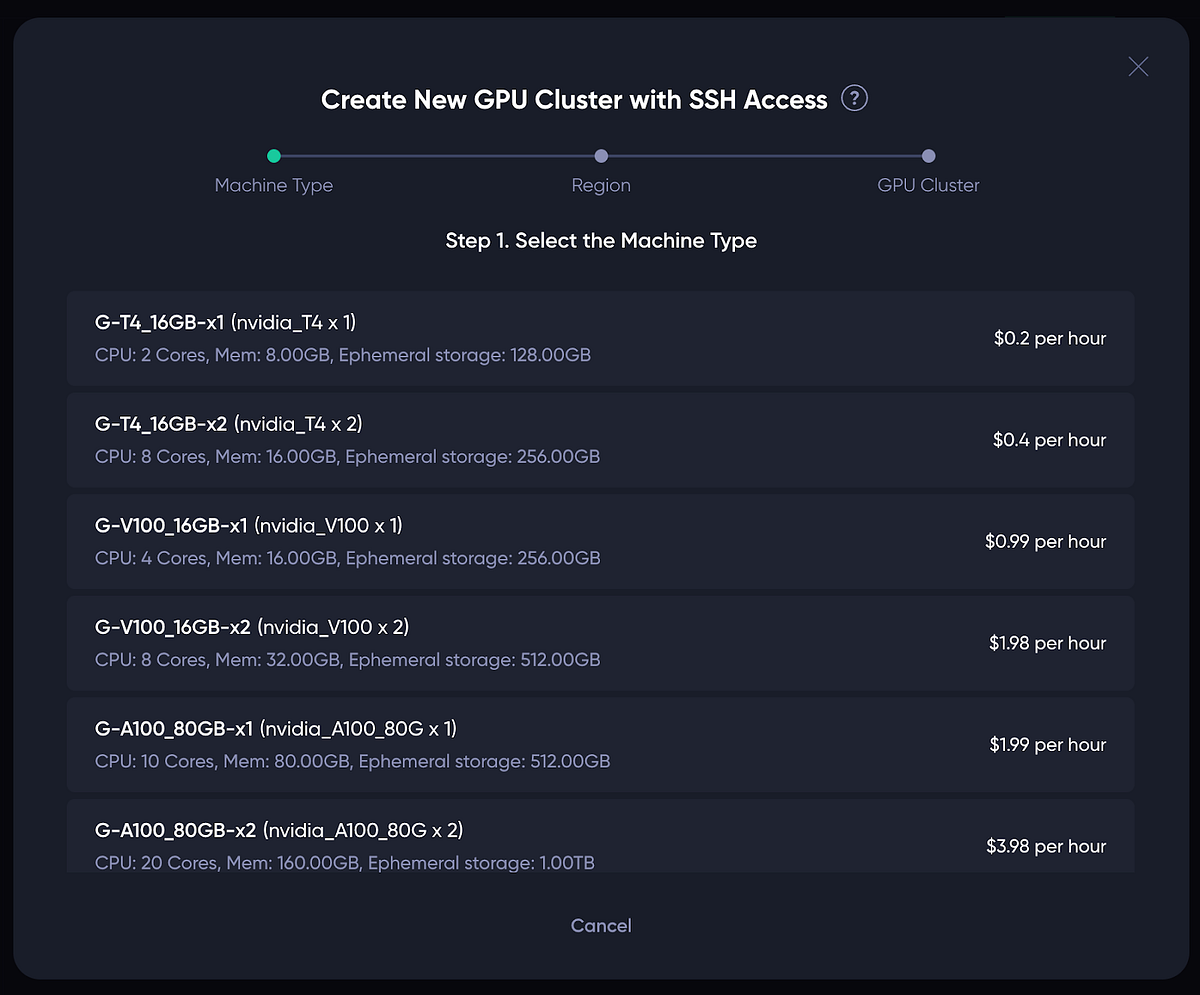
6 months ago
Theta EdgeCloud Launches GPU Clusters for Enhanced AI Model Training
Theta EdgeCloud has introduced a significant enhancement by enabling users to launch GPU clusters, which are essential for training large AI models. This new feature allows the creation of clusters composed of multiple GPU nodes of the same type within a specific region, facilitating direct communication among nodes with minimal latency. This capability is crucial for distributed AI model training, as it allows for parallel processing across devices. Consequently, tasks that traditionally required days or weeks to complete on a single GPU can now be accomplished in hours or even minutes, significantly accelerating the development cycle for AI applications.
The introduction of GPU clusters not only enhances training efficiency but also supports horizontal scaling, allowing users to dynamically add more GPUs as needed. This flexibility is particularly beneficial for training large foundation models or multi-billion parameter architectures that exceed the memory capacity of a single GPU. The demand for this feature has been voiced by numerous EdgeCloud customers, including leading AI research institutions, highlighting its importance in the ongoing evolution of Theta EdgeCloud as a premier decentralized cloud platform for AI, media, and entertainment.
To get started with GPU clusters on Theta EdgeCloud, users can follow a straightforward three-step process. This includes selecting the machine type, choosing the region, and configuring the cluster settings such as size and container image. Once the cluster is created, users can SSH into the GPU nodes, enabling them to execute distributed tasks efficiently. Additionally, the platform allows for real-time scaling of the GPU cluster, ensuring that users can adapt to changing workloads seamlessly. Overall, this new feature positions Theta EdgeCloud as a competitive player in the decentralized cloud space, particularly for AI-driven applications.

6 months ago
Top Crypto Tokens to Watch in 2025: BlockDAG, Toncoin, Litecoin, and Filecoin
As 2025 approaches, the cryptocurrency market is abuzz with speculation about which tokens will emerge as top performers this year. Investors are shifting their focus from mere hype to tangible progress, adoption rates, and strategic market positioning. Among the frontrunners, BlockDAG is gaining significant attention, alongside established players like Toncoin, Litecoin, and Filecoin, each offering unique advantages worth monitoring.
BlockDAG is making waves with its ambitious exchange strategy, planning to list on 20 centralized exchanges on June 13. This aggressive move is not just about visibility; it signifies a readiness to expand its market reach. With over $273 million raised and a presale currently underway, BlockDAG has already sold more than 21.4 billion coins, yielding substantial returns for early investors. Its hybrid model, which combines DAG scalability with Proof-of-Work reliability, is attracting both developers and miners, positioning it as a serious contender in the crypto landscape.
On the other hand, Litecoin remains a reliable choice in the crypto sphere, known for its fast transactions and low fees. Its potential in cross-border payments is gaining traction, appealing to investors seeking a blend of legacy trust and future utility. Meanwhile, Toncoin benefits from its integration with Telegram, providing seamless access to millions of users and enhancing its adoption prospects. Lastly, Filecoin is carving out its niche in decentralized storage, catering to the growing demand for secure data solutions. Each of these tokens presents distinct opportunities, but BlockDAG's early momentum and strategic roadmap may give it the edge in the competitive crypto market of 2025.

6 months ago
Roam: Revolutionizing WiFi Sharing with Blockchain Technology
In an innovative shift towards decentralized connectivity, Roam is transforming the way users share their internet connections. By allowing individuals to contribute both private and public WiFi to a global network, Roam empowers users to monetize their unused bandwidth while providing others with reliable access to the internet. This model not only enhances connectivity but also rewards users with Roam Points, which can be converted into $ROAM or used to participate in various in-app activities, including games and exclusive events.
Security and privacy are paramount concerns when sharing internet connections, and Roam addresses these issues with a robust security framework built on blockchain technology. Users maintain full control over their WiFi sharing preferences through the Roam app, allowing them to add, edit, or remove hotspots at their convenience. The platform ensures that all connections are encrypted, safeguarding personal data for both the host and the users accessing the network. Additionally, each Roam account is assigned a unique decentralized identity (DID), further enhancing user privacy and data management.
Roam's rapid growth is evident, with over 2 million registered users and more than 3.5 million WiFi hotspots mapped globally, making it the leading decentralized physical infrastructure network (DePIN) for WiFi coverage. This expansion is fueled by a diverse user base, including students, travelers, and local businesses, who are not just consumers but active contributors to the network. By downloading the Roam app, users can easily share their WiFi and earn rewards, thereby participating in a community-driven effort to enhance global connectivity.

6 months ago
Sungkyunkwan University’s AIM Lab Adopts Theta EdgeCloud for AI Research Advancement
Sungkyunkwan University’s AI & Media Lab (AIM Lab), led by Professor Sungeun Hong, has become the 32nd academic institution globally to adopt Theta EdgeCloud, a decentralized GPU infrastructure tailored for AI and machine learning research. This partnership will significantly enhance the AIM Lab's capabilities in areas such as multimodal learning, domain adaptation, and 3D vision. Notably, their recent work, supported by Samsung, titled "Question-Aware Gaussian Experts for Audio-Visual Question Answering," has been accepted as a Highlight Paper at CVPR 2025, one of the most prestigious AI conferences. The integration of Theta EdgeCloud will allow researchers to access high-performance GPU resources on demand, facilitating faster iterations while reducing costs.
Professor Hong, an expert in multimodal AI and robotic perception, emphasizes the advantages of Theta EdgeCloud in providing the necessary computing flexibility to advance their research. The AIM Lab's focus on vision-language modeling and privacy-preserving domain transfer will benefit from the decentralized architecture, enabling rapid training and evaluation of models. The collaboration with Samsung further strengthens the lab's research output, showcasing a strategic relationship that enhances the development of impactful AI technologies.
The AIM Lab's recent achievements, including the innovative QA-TIGER model for video question answering and a memory-efficient attention mechanism for image segmentation, highlight the lab's commitment to cutting-edge research. By joining a network of esteemed institutions leveraging Theta EdgeCloud, such as Stanford and KAIST, Sungkyunkwan University is poised to lead in the advancement of AI innovation. This partnership not only accelerates research but also positions the AIM Lab at the forefront of developing socially relevant AI applications, demonstrating the power of academic-corporate collaboration in the tech landscape.
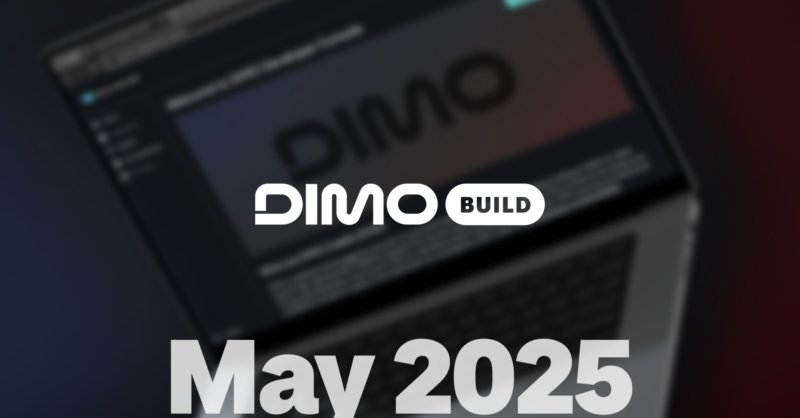
6 months ago
DIMO Unveils Exciting Updates for Developers in May
In May, DIMO announced several exciting updates aimed at enhancing the developer experience on its platform. The most notable introduction is the public beta of DIMO Webhooks, which allows developers to subscribe to vehicle events instead of repeatedly querying the Telemetry API. This innovative feature is expected to significantly streamline the development of event-driven applications. The Webhooks functionality is integrated into the DIMO Developer Console, with support for the Python SDK and n8n already available, enabling developers to manage webhooks programmatically or in a low-code environment.
Additionally, DIMO has improved the user experience for logging out of accounts using the Login with DIMO feature. Developers can now implement a direct logout option through the React Component SDK, allowing users to log out easily via a new “Manage DIMO Account” button. For non-React applications, a new URL Redirect method has been introduced, making it simpler to manage user sessions. These updates aim to enhance user convenience and streamline the logout process for developers.
Furthermore, DIMO is excited to introduce on-chain attestations, which will help establish trust in vehicle data by allowing third parties to verify information immutably on the blockchain. This feature acts like a Notary Public for vehicle data, ensuring authenticity and quality without relying solely on the source. Lastly, DIMO will be deprecating the old privilege grants for the Token Exchange API on May 27th, urging developers to transition to the SACD permissions contract to maintain service continuity. These updates reflect DIMO's commitment to fostering a robust and reliable data ecosystem for developers and users alike.
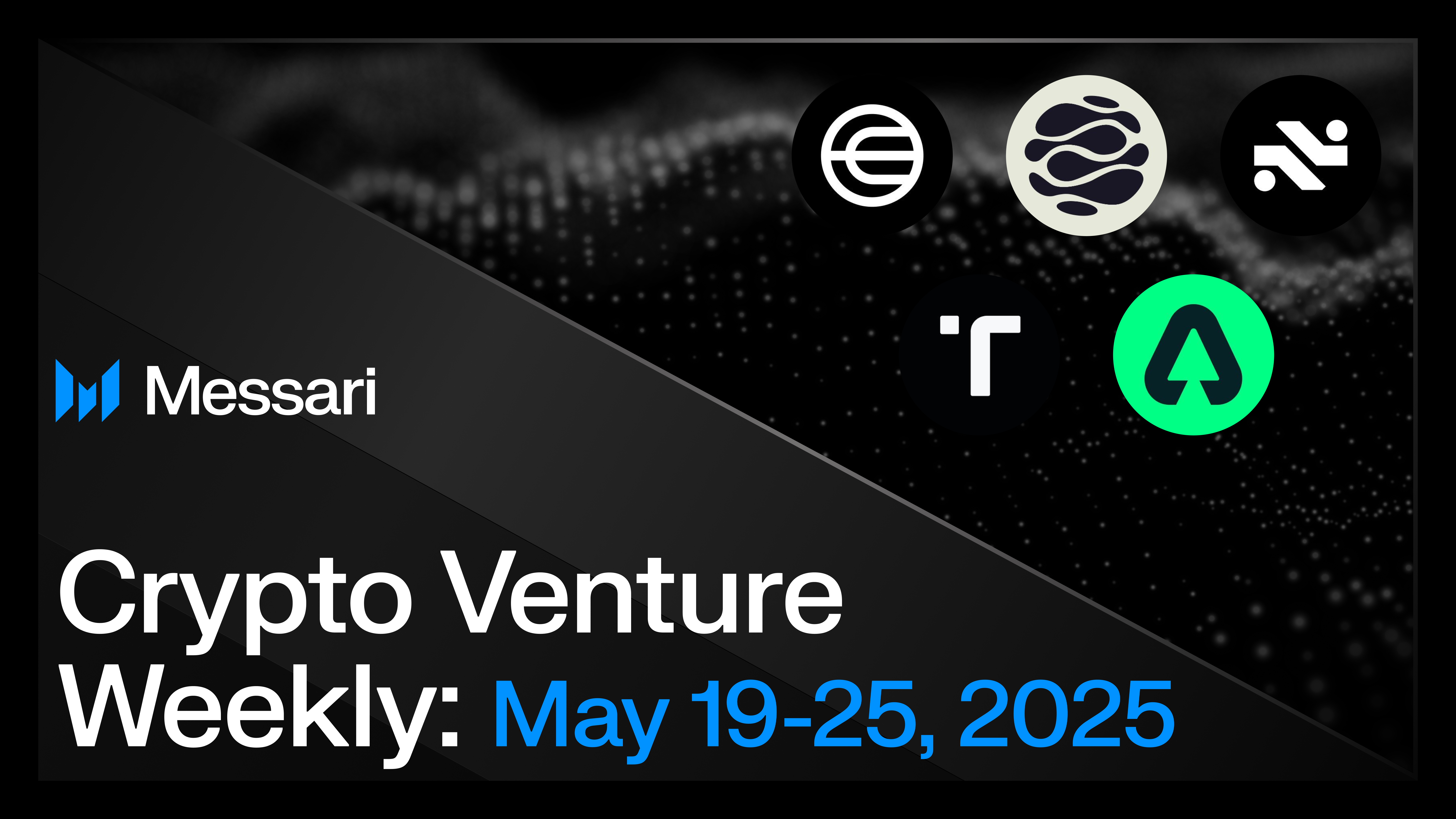
7 months ago
Blockchain Fundraising Surges with $267M Raised in a Week
Last week, the blockchain fundraising landscape witnessed a significant surge, with 26 projects collectively raising a remarkable $267 million. The standout was World Foundation, which successfully completed a $135 million public token sale aimed at creating a proof-of-personhood protocol that facilitates universal digital identification and global financial access. Following closely was Catena Labs, which secured $18 million in seed funding to develop an AI-native financial institution. Other notable projects included Roxom, True Markets, and Hyperdrive, each attracting substantial investments to enhance their innovative offerings in the blockchain space.
In addition to fundraising, the week also saw notable mergers and acquisitions (M&A) that are reshaping the blockchain ecosystem. DePIN Pulse made headlines by acquiring DePIN.Ninja and Who Loves Burrito, consolidating fragmented data within the DePIN ecosystem. This strategic move aims to streamline operations and enhance data analytics capabilities. Meanwhile, Alchemy expanded its portfolio by acquiring NFT launchpad HeyMint, which provides no-code tools for NFT creation, thereby bolstering its Smart Wallets initiative. Apex Group also announced plans to acquire Tokeny, further solidifying its commitment to digital asset infrastructure.
On the venture capital front, Theta Capital Management launched Theta Blockchain Ventures IV, a $175 million fund-of-funds dedicated to supporting crypto-native VCs focused on early-stage blockchain startups. This fund aims to leverage the expertise of specialist managers to navigate the evolving landscape of digital assets. Insights from industry experts highlighted a shift in crypto VC dynamics, with a focus on long-term fundamentals rather than speculative investments. As the sector continues to mature, these developments signal a promising trajectory for blockchain innovation and investment.

7 months ago
Messari Predicts DePIN Market Cap to Reach $3.5 Trillion by 2028
In a recent report, Messari, a prominent crypto data platform, has projected that the market capitalization of Decentralized Physical Infrastructure Networks (DePIN) could reach an astounding $3.5 trillion by 2028. This forecast comes on the heels of a significant event in Europe, the "2025 Iberian Peninsula blackout," which resulted in a €1.6 billion setback and highlighted the vulnerabilities of centralized systems. The incident has prompted a reevaluation of aging energy and communication infrastructures, emphasizing the urgent need for decentralized alternatives like DePIN.
Messari's analysis indicates that the DePIN market is gaining momentum, with its value estimated to grow to $50 billion in 2024. The first quarter of this year showcased a surge in capital markets, technology adoption, and sector innovation, despite the sector still being in its early stages. With over 13 million devices contributing to the decentralized network and $350 million in seed funding, the demand for DePIN is expected to rise exponentially in the coming years. The anticipated market cap of $3.5 trillion would surpass the $1.8 trillion valuation of the telecom services market by 2024, according to Data Bridge.
The report also underscores the roles of Solana and Base as pivotal players in the DePIN ecosystem. Messari noted that DePINs launched a year prior to its Q1 2025 report achieved an average fully diluted valuation of $760 million, marking significant growth. Solana is positioned to become a leading network infrastructure, while Base is expected to see increased demand for consumer-focused applications. Other notable projects within the Solana ecosystem include Render, Helium Mobile, Hivemapper, Xnet, and Nosana, all of which are set to play crucial roles in the evolution of DePIN.
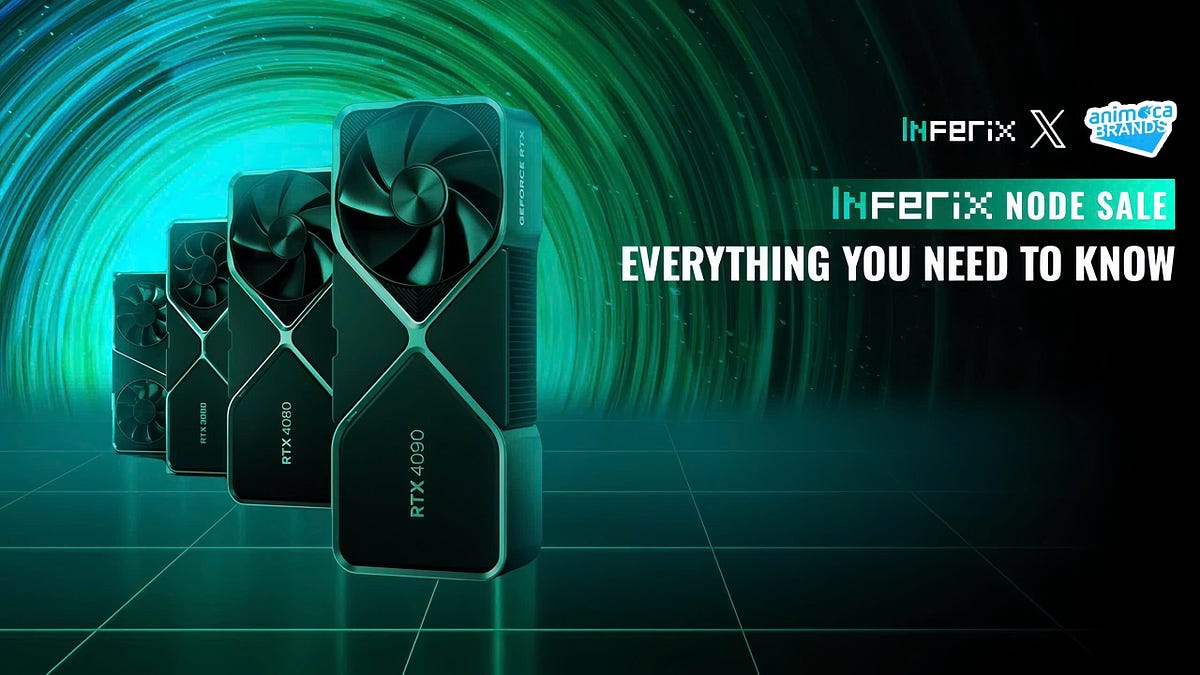
7 months ago
Inferix to Launch Worker Node Sale, Expanding Decentralized GPU Network
The DePIN (Decentralized Physical Infrastructure Networks) narrative is rapidly gaining traction, bolstered by the introduction of innovative protocols and the expansion of existing ones. Recent reports indicate that the DePIN sector's total market capitalization has surged by 132% year-over-year, surpassing $40 billion. Additionally, startups within this domain have raised over $266 million in funding. With its demonstrated real-world applications and strategic partnerships, DePIN is poised to transform major industries such as telecommunications, energy, and computing. Notably, the compute sub-sector is anticipated to become one of the largest DePIN markets, with Inferix leading the charge as Asia's largest decentralized GPU network, offering high-performance GPUs for AI training and visual computing at competitive costs.
Inferix has announced a partnership with Animoca Brands Japan to launch the Inferix Worker Node Sale on May 30, 2025. This sale will feature a network of decentralized machines, categorized as Manager, Verifier, and Worker nodes. The Worker Node is crucial for handling the majority of rendering and processing tasks. When an AI or rendering job is requested, the Manager node distributes the tasks to Worker nodes, which then return the results for verification. Successful verification results in rewards distributed in the form of IFX tokens from the Inferix blockchain, incentivizing participation in the network.
The Worker Node License, represented as an ERC721 NFT, allows holders to earn rewards by operating a Worker Node Client. Inferix aims to deploy around 100,000 Worker Nodes, with 75% of the Ecosystem Fund allocated for service revenue rewards. The Node Sale will include both a Whitelist Sale and a Public Sale, commencing simultaneously on May 30, 2025. Interested participants can find detailed information about the sale structure, pricing tiers, and eligibility criteria through the official channels. Inferix's innovative GPU network is set to revolutionize visual computing, enabling faster and more cost-effective rendering solutions for a variety of industries.
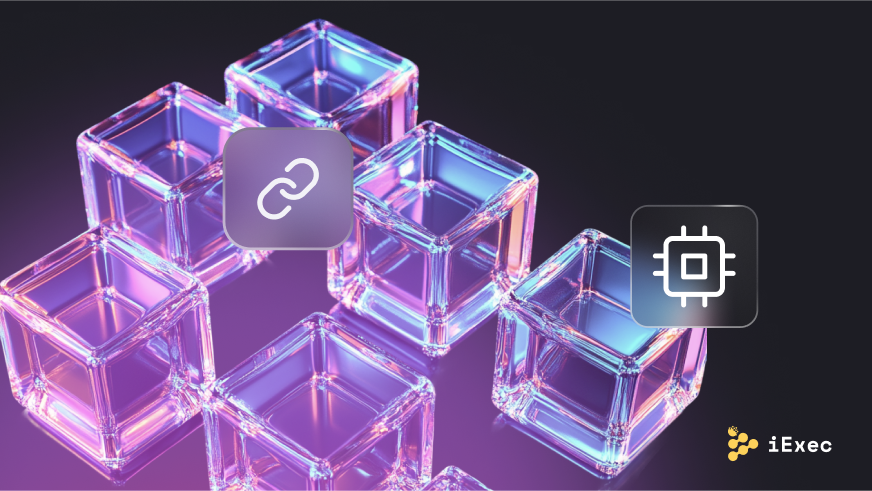
7 months ago
DePIN: Revolutionizing Infrastructure with Decentralization
In 2025, DePIN (Decentralized Physical Infrastructure Networks) has transitioned from a niche within the cryptocurrency space to a critical component of the real world. This evolution is not merely theoretical; it encompasses tangible elements such as routers, GPUs, sensors, and solar panels, all contributing to a new kind of internet that is peer-to-peer, tokenized, and built from the edge. DePIN fundamentally alters the traditional infrastructure model by enabling everyday users to contribute compute, storage, bandwidth, or energy, and in return, they receive compensation. With a market cap exceeding $50 billion and over 350 tokens, DePIN has emerged as Web3's fastest-growing vertical, supported by real-world deployments and increasing revenue streams.
Leading projects like iExec, Arweave, and Helium are at the forefront of this movement, utilizing smart contracts to operate their networks without intermediaries. Contributors can easily set up nodes, serve the network, and earn tokens, all while ensuring data privacy and system resilience. However, scaling these networks presents significant challenges, including the need for coordination, cross-chain interoperability, and navigating regulatory landscapes. iExec, in particular, excels in providing confidential computing infrastructure that is essential for AI, data management, and real-time applications.
Ultimately, DePIN is on the path to establishing a decentralized operating system for the physical world. This innovative approach is not only fast and composable but also represents a paradigm shift in how infrastructure is conceived and utilized. Rather than relying on rented systems, the future of infrastructure is about earning it, one node at a time, empowering individuals to take part in this transformative ecosystem.

7 months ago
Decentralizing Telecom Infrastructure: A Win-Win for Small Businesses and Telecom Giants
In a recent interview at Consensus 2025 in Toronto, Frank Mong, the COO of Nova Labs, emphasized the financial benefits of decentralizing telecommunication infrastructure for both small businesses and large telecom corporations. He highlighted that local operators, such as bars and restaurants, can generate revenue by hosting wireless hotspots, thereby expanding network coverage. This decentralized approach allows significant cost savings for telecom giants, who can utilize the Helium Network's telemetry to enhance their services in areas that typically lack coverage, known as dead zones.
Mong pointed out the high costs associated with traditional telecom infrastructure, noting that establishing a single 5G tower can cost around $300,000. Instead of burdening consumers with expensive phone plans, he proposed a model where individuals with Wi-Fi networks can share their connections securely, providing valuable data to major companies like AT&T. This innovative use of decentralized physical infrastructure networks exemplifies how blockchain technology can enhance resilience against outages and disruptions while delivering real-world value.
In addition to these insights, Nova Labs has been actively forming partnerships with telecom companies to improve network coverage. Notably, in January 2024, they collaborated with Telefónica in Latin America, and more recently, in April 2025, they partnered with AT&T to facilitate automatic access for users within the Helium Network's coverage area. With over 95,000 mobile hotspots in the U.S. and more than 284,000 active IoT hotspots globally, Mong believes that the success seen in the U.S. and Mexico should be replicated worldwide as Nova Labs continues to expand its reach through strategic partnerships.
Signup for latest DePIN news and updates